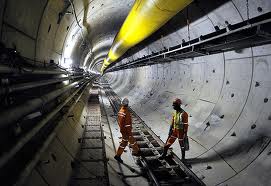description, national governments have a social and political responsibility of providing basic services to its nation and citizens. In practice and through time, African governments have developed and successfully maintained a reputation for reneging on this responsibility with aplomb. Such skills pale in comparison to their ever-reliable ability to give excuses or deflect when they are called to charge for failed promises.
There is always one story, several parties to blame and nothing gets done, but alas we all know this story! All that notwithstanding, the fact of the matter is development is a very expensive concept and it gets more expensive when put in practice. The resources available for an idea are finite but the development of that idea infinite. These resources get progressively smaller the closer to execution of the idea. The most well-intentioned national government still have to deal with the politics of municipal governments, interest groups, citizens and international scrutiny whenever development agendas have to be pushed through.
There is dearth of infrastructure in Africa. Our roads and rail network are poor, though its only fair to commend southern African countries on their steadily improved transportation networks. None of the ports in Africa are able to perform at the same level as the likes of Hong Kong or Amsterdam yet we have bigger coastal cities with enough resources to move; and strategically located to be a major transit point. Suffice to say, a major component of economic and social development, which is mobility, is not being catered to by most African national governments. While we already acknowledged the staggering cost of these projects, the resources available to governments are routinely squandered with no kind of accountability.
Consequently, we have an ongoing system of lack of accountability and transparency in economies not robust enough for public sector to single handedly drive development across the board. Public Private Partnerships (PPP) offer a tested and proven solution to this problem. The South African National Treasury defines a PPP as a long-term contractual agreement between public sector and a private party wherein the private party assumes substantial financial, technical and operational risk in the design, financing, building and operation of a project. Summarily, using well developed PPP’s as drivers for implementation of development projects, governments are able to leverage on private sector efficiencies; shift the cost of development projects to private sector while allowing them recoup their cost through long term concessions; and most importantly offer quality services to citizens even if they are paying for it.
There is a long list of successful PPP’s especially in South Africa. The N4 Toll road from Witibank, South Africa to Maputo, Mozambique cost R3 billion ($324 million) by 1996 estimates is an example of a successful road project PPP with a 30 year concession period. This project involved the rehabilitation including construction of new road of 198km road. Following the success of N4 Toll Road, the Mozambican National Ports and Railway Authority formed a joint venture with British Mersey Docks and Harbor Company for a 15 year concession to finance, rehabilitate, operate and upgrade the Maputo Ports in 2003. Following take over, there has been a steady increase in tonnage volume cleared at the port year-to-year. Similar agreements have been used to upgrade the ports of Dar-es-Salaam, Tanzania and Lekki expressway, Nigeria. The Guatrain Rapid Rail Link in South Africa is a perfect example of railroad PPP that has been a major success. This project was intended to ease traffic during the FIFA World Cup of 2010 in South Africa.
PPP’s are not without their drawbacks but once well-structured and implemented from conception stage they offer the best solution not just financially but including social benefit to most African countries especially in spite of constraints governments face. As much as there is a long list of successful PPP’s of various sizes and scales, there is also a long list of failed PPP’s. Like most projects, PPP’s rely on realistic projection of revenue stream, commitment and responsibility to the contracts for it to succeed. It is therefore important that in recognizing the wholesome opportunity and development benefit, governments should ensure that PPP’s are properly structured, the right company for the job is chosen and on their part, they stay committed to the project. After all, even PPP’s pay taxes to government coffers.
On paper, I do believe that PPP’s offer a viable solution to the challenge of infrastructural development. Although this has been a major issue In Africa, the bigger problem is how do we keep such a gem of an idea away from the tentacles of African politics. If some kind of body or ordinance is put in place to check the structures of PPP’s from conception to execution then this might infact be the magic bullet. In spite of social and development benefits of Lekki toll way, some Lagosians might disagree on the possibility of separating politics from PPP’s!








